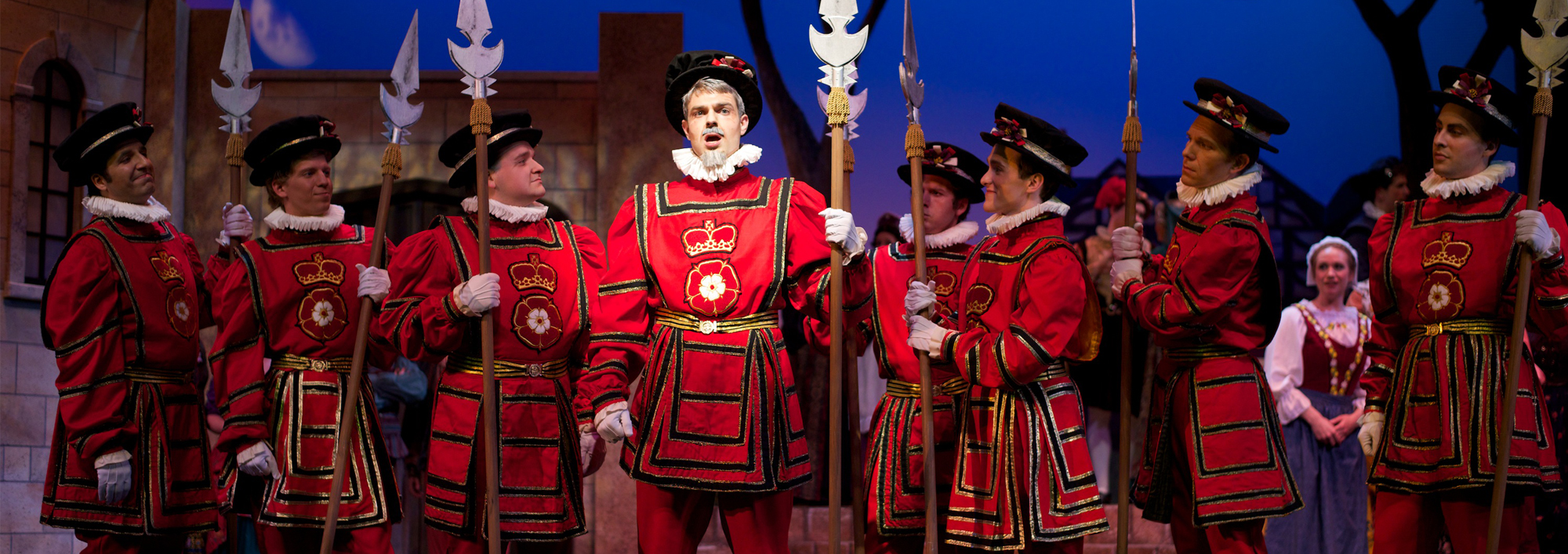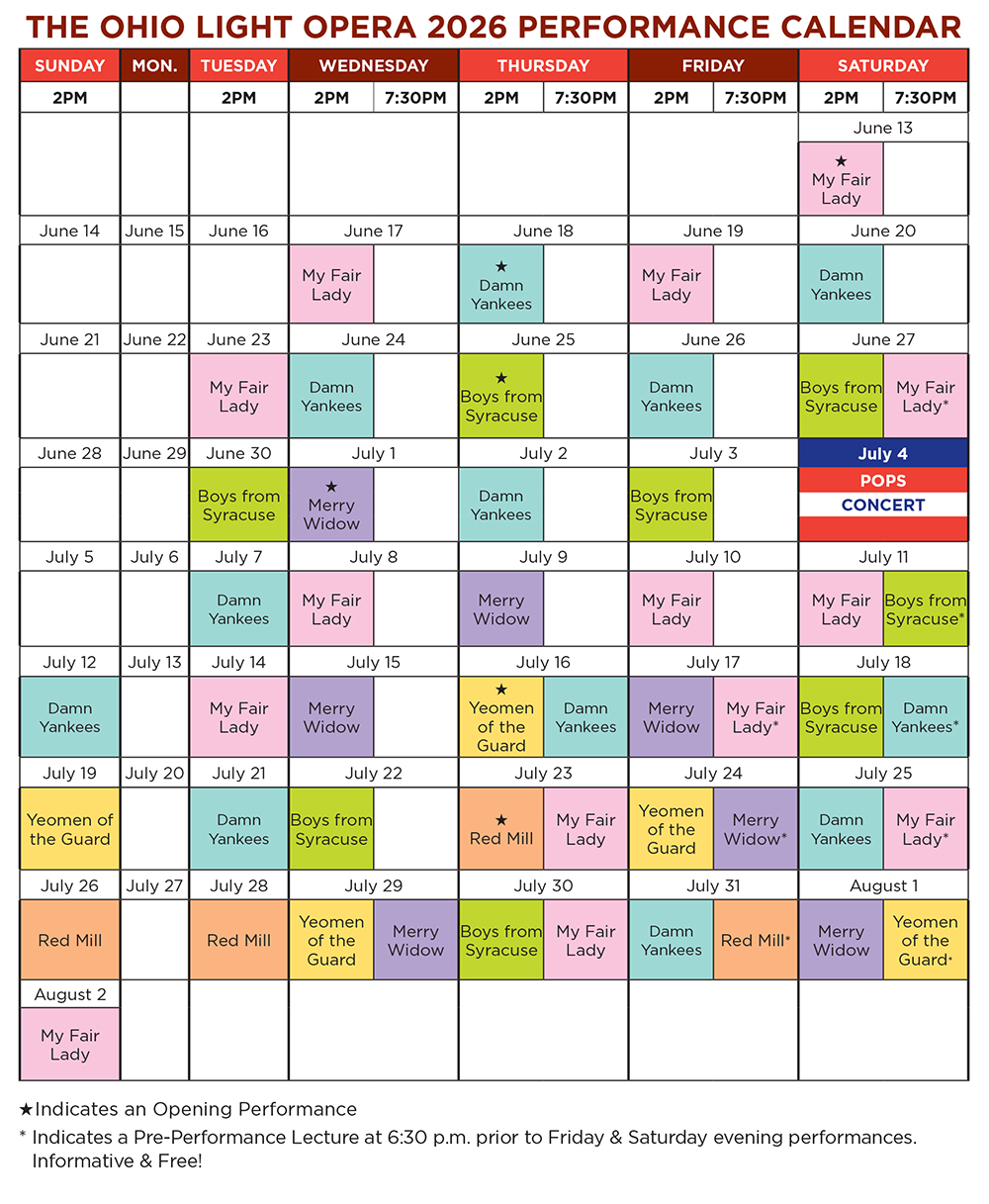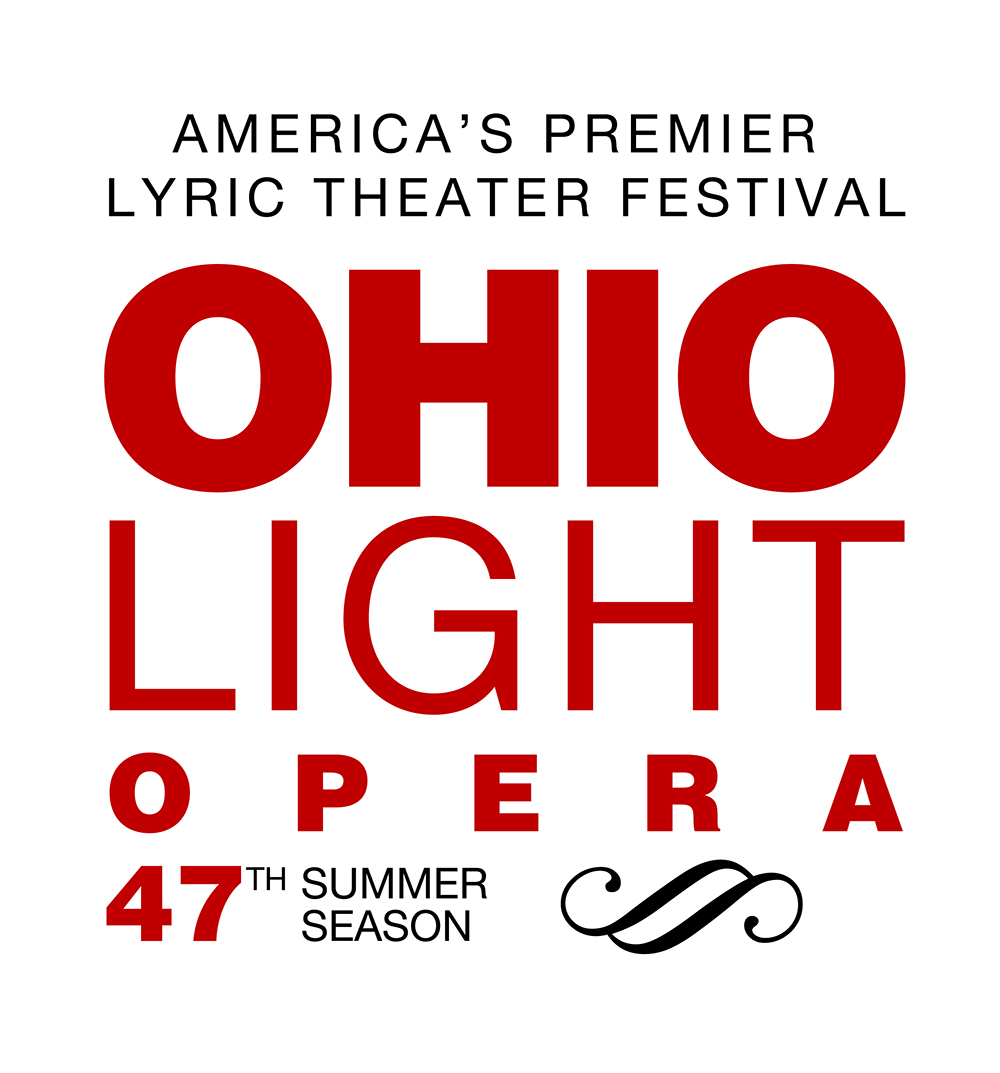
ANNOUNCING THE 2026 OHIO LIGHT OPERA FESTIVAL SEASON
With its 2026 Summer Festival season, the Ohio Light Opera will again faithfully carry out its unique mission, unmatched in today’s lyric theater world. London, Paris, Ephesus, Washington DC, even a Dutch village—no matter the setting, these six shows toss ordinary people into delightfully ridiculous situations, where romance tangles with duty, disguises spark confusion, and music keeps the whole madcap adventure spinning until everyone finds where they belong. Even the more recognizable titles in OLO’s 2026 season are less frequently produced in theater venues today. When they are, it is typically in heavily revised and re-orchestrated versions, with diminished respect for the original productions. Please don’t pass up the chance to experience the theatrical tradition of these timeless masterpieces.
The Yeomen of the Guard
or The Merryman and His Maid
(1888)
Music by Arthur Sullivan
Libretto by William S. Gilbert
Gilbert and Sullivan’s The Yeomen of the Guard stands apart as their most dramatic and poignant collaboration, blending romance, comedy, and genuine pathos against the 16th-century backdrop of the Tower of London. Premiering at the Savoy Theatre to great acclaim, it tells the tale of Colonel Fairfax, a nobleman falsely condemned to death, who marries a strolling singer, Elsie Maynard, in a secret plot to save his estate before his execution. When Fairfax escapes and disguises himself among the Yeomen, a web of mistaken identities, thwarted ambitions, and unrequited loves unfolds, touching not just Elsie but also the jester Jack Point, whose heart breaks when his love for her slips away. Rich in pageantry, with stirring ensembles and some of Sullivan’s most beautiful music, Yeomen moves beyond satire to genuine human drama, making it one of the most emotionally powerful and enduring works in the Savoy canon.
The Merry Widow
(1905)
(Die lustige Witwe)
Music by Franz Lehár
Libretto by Viktor Léon and Leo Stein
Translation and performance edition by Steven Daigle
Franz Lehár’s The Merry Widow became the most celebrated operetta of its time, sweeping across Europe and America with its irresistible blend of romance, comedy, and glittering Viennese waltzes. Set in Paris, the story whirls around the wealthy young widow Hanna Glawari, whose fortune is desperately coveted by the officials of her tiny homeland, Pontevedro, who fear bankruptcy if she marries a foreigner. Enter the dashing but stubborn Count Danilo, once Hanna’s true love, who is assigned the task of wooing her back—not for money, but for country. Between lavish balls, late nights at Maxim’s, comic intrigue, and jealous lovers, sparks fly as Hanna and Danilo spar, waltz, and ultimately rediscover their passion, ensuring both romance and the salvation of Pontevedro. The operetta’s infectious charm, memorable melodies, and dazzling spectacle made it an instant international sensation, securing its place as one of operetta’s greatest hits.
The Red Mill
(1906)
Music by Victor Herbert
Libretto by Henry Blossom
Historical reconstruction by Steven Daigle
Victor Herbert’s The Red Mill was one of his biggest Broadway triumphs, running nearly 300 performances and later enjoying an even longer run in a 1945 hit revival. A fast-paced comic operetta with a distinctly American flair, it follows two bumbling American tourists who find themselves stranded in a quaint Dutch village after running up a bill at the local inn. In trying to escape, they tumble into a whirlwind of romantic entanglements, mistaken identities, and zany schemes—all revolving around the town’s iconic old red mill. With its lively score featuring hits like “Every Day Is Ladies’ Day with Me,” “Moonbeans,” and “The Streets of New York,” the show captured audiences with its mix of slapstick humor, tuneful melodies, and Herbert’s sparkling orchestration—truly one of the enduring gems from the early American musical stage.
The Boys from Syracuse
(1938)
Music by Richard Rodgers
Lyrics by Lorenz Hart
Book by George Abbott, adapted from Shakespeare’s play The Comedy of Errors
Rodgers and Hart’s The Boys from Syracuse made Broadway history as its first musical adaptation of a Shakespeare play, turning The Comedy of Errors into a jazzy, screwball romp brimming with mistaken identities and irresistible songs. Set in ancient Ephesus, the plot follows two sets of identical twins—masters Antipholus and servants Dromio—who were separated in childhood and now, unbeknownst to each other, wind up in the same city. Chaos erupts as wives, merchants, and lovers are thrown into a whirlwind of confusion, leading to slapstick encounters, romantic mix-ups, and ultimately joyful reunions. Rodgers and Hart’s sparkling score, including standards like “Falling in Love with Love,” “This Can’t Be Love,” and “Sing for Your Supper,” brought both sophistication and swing to Shakespeare, making the show a Broadway hit and a delightful milestone in the golden age of American musical comedy.
Damn Yankees
(1955)
Music and Lyrics by Richard Adler and Jerry Ross
Book by George Abbott and Douglass Wallop, based on Wallop’s 1954 novel The Year the Yankees Lost the Pennant.
Damn Yankees, the Tony Award–winning musical, is a jazzy, devilish spin on America’s love affair with baseball. It tells the story of Joe Boyd, a middle-aged Washington Senators fan who sells his soul to the smooth-talking Mr. Applegate (the Devil) in exchange for becoming Joe Hardy, the slugger who can finally beat the unbeatable New York Yankees. Complications arise when Joe’s longing for his wife competes with temptations from Applegate—most notably the sultry seductress Lola and her sizzling number “Whatever Lola Wants.” Packed with humor, heart, and iconic songs like “Heart” and “Shoeless Joe from Hannibal, Mo.,” the show became a Broadway smash and later a hit film, cementing its place as a classic American musical, in which love, loyalty, and a little faith triumph over even the devil’s best pitch.
My Fair Lady
(1956)
Music by Frederick Loewe
Book and Lyrics by Alan Jay Lerner
Based on George Bernard Shaw’s 1913 play Pygmalion
Once it opened in New York, Lerner and Loewe’s My Fair Lady quickly earned the title “the perfect musical,” breaking Broadway records and enchanting audiences worldwide with its wit, romance, and unforgettable score. The story follows cockney flower girl Eliza Doolittle, who becomes the subject of phonetics professor Henry Higgins’ bold experiment: to transform her speech and manners so that she can pass as a duchess in high society. As Eliza blossoms with intelligence, confidence, and dignity, Higgins finds himself bewildered by his own changing feelings toward her. Filled with beloved songs like “I Could Have Danced All Night,” “Wouldn’t It Be Loverly?” and “On the Street Where You Live,” the musical blends comedy, satire, and genuine warmth, creating a dazzling theatrical experience that has remained one of the most beloved works in American musical theater.






